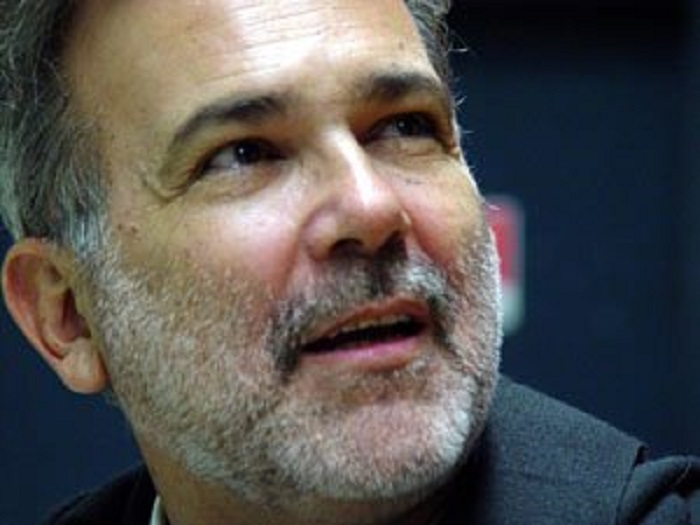
##
As the El-Warsha troupe resumed its storytelling performances last week in Cairo, Ahram Online listens to the man behind its performances.
El-Warsha's approach to its performances is as such: Enchanting stories from your childhood and fairytales that are no longer trapped in books, the folk heroes you have admired, and all the modern heroes that survive to tell their tales, have passed that colourful old stained glass window that greets you on your way to the top floor.
El-Warsha was created by founding director Hassan El-Geretly as the first independent troupe participating in the free theater movement in Egypt back in 1987. Delving into the heart of authentic folk heritage, El-Warsha managed to reintroduce as well as open new doors for interpretations of old folk arts. Stitching the old with the new without taking sides has always been El-Warsha’s specialty. Among the fading folk arts revived by troupe is that of storytelling.
“Storytelling has always been the most important thing in this world,” explained director Hassan El-Geretly, “our motto is Ehki w Eish (tell the tale and live) so that you are able to tell your story and continue. It is like the idea of testimony, you say things as a way of remembering them and reminding others. It’s the same way that Palestine lives on in the verses of Mahmoud Darwish, the land is there in the words,” he added.
“Like what happened in Tahrir square during the first 18 days of the revolution, people would come up to you, greet you, tell you what happened and then move on without necessarily having your contact information,” he explained.
In 2007, in partnership with Goethe Institute and the French Cultural Center in Alexandria, El-Warsha compiled 13 stories from the oral history of the Siwa Oasis in a publication called Desert Stories. Members of the troupe also participated in Hekaya, another project aiming to preserve storytelling techniques in the Arab World. A few years later, they managed to document more stories and compile them into a book titled Hekayat El-Daqahlia (stories of Daqahlia).
El-Warsha is concerned with all forms of storytelling, from folk stories, to contemporary stories of life’s daily rituals. Residency between El-Warsha and Said El-Dawi, the master of storytelling and the only Sira (Epic) poet alive to date, showcased a brilliant mélange between modern and traditional techniques while chanting the same Sira stories back in 2012.
“We tried to focus on stories of Women in War, yet through our performance, Women of Troy, we were unable to find the right mixture of horror and sorrow to convey Mahmoud Darwish’s concept of the Wisdoms of the Conquered and how people can preserve their joi de vivre in the hardest of times,” he conveys to Ahram Online.
“However, after losing track, we were inspired by the Gaza monologues,” he said.
The Gaza Monologues is the brainchild of the ASHTAR Palestinian theatre group in 2010. The Gaza Monologues are memoirs of 22 days of war during which at least 1,380 Palestinians died, 431 of whom were children in the 2010 Gaza war.
El-Warsha gathered 33 artists to read the monologues in Cairo, in parallel with 50 other troupes around the world in 2011.
“It was then that we went back to the idea of women and war and contacted Ayam Al-Masrah troupe in Gaza, and worked with them as part of our Tamasi collective independent performing arts organizations across the MENA region,” the director said.
“We met the Gaza women in Jordan in September 2013 for the first time and we were stunned by their stories and their personality and the way they described their daily lives in the context of war. Their stories revealed how strong they are, their survival instinct and their how they are stronger than men as they are able to maintain a daily routine despite being at war,” he explained.
At the other end, the women of Gaza were very fond of El-Warsha’s 20-year-old techniques which are quite flexible with the exception of a few guidelines. “Our style is about leaving my imagination to unlock yours, hence very little room for dramatisation,” El-Geretly noted.
With El-Warsha’s storytellers Arfa Abdel Rassoul and Dalia Al-Guindy, the storytellers of Gaza learned about the Stories of Al-Daqahlia, and the Sira of Beni Helal and “were enchanted to hear about folk stories outside the realm of daily life, which were equally brilliant,” El-Geretly said.
Last month El-Warsha met again with their counterparts in Jordan, after participating in avignon festival in France. Together they stitched the tales of remembrance and resistance side by side.
“The French proverb says that ‘good accounts makes good friends’, but I believe that good stories makes good friends,” El-Geretly concluded.
Short link: